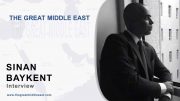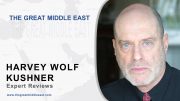AMID a frenzy of honking, a young woman leant out of the window of a car, one of the hundreds that besieged the headquarters of the ruling Justice and Development (AK) party in Ankara, making an Islamist salute with her left hand and an ultranationalist one with her right. Outside the building, thousands of cheering, singing AK supporters awaited their leader, fresh from his big victory at the polls. “This is Turkey’s new liberation,” yelled a man hoisting a flag emblazoned with the image of President Recep Tayyip Erdogan and the coat of arms of the Ottoman empire, his voice barely audible over the din. “The West will not boss us around,” said another man, a schoolteacher. It was the evening of June 24th, day one of what Mr Erdogan calls the New Turkey, a synthesis of Islamic nationalism and Ottoman nostalgia, and possibly the last day of the old republic founded by Kemal Ataturk.
Hours earlier, despite predictions of a much closer race, Mr Erdogan and his party, plus their ultranationalist allies, scored a double knockout in Turkey’s elections. In the presidential contest, the Turkish strongman defeated the main opposition hopeful, Muharrem Ince, by taking about 53% of the vote, compared with Mr Ince’s 31%. In the parliamentary vote, his AK party and its coalition partner, the hardline Nationalist Movement Party (MHP), won a combined total of 54%, enough to ensure a comfortable majority with 344 seats out of 600 in the assembly. The opposition alliance, led by Mr Ince’s CHP and the Iyi party, won just 189 seats. The pro-Kurdish HDP won 12%, enough to clear the electoral threshold and send 67 of its members to parliament.
Though free, it was the most unfair election in Turkey in decades. Under pressure from government cronies, most news outlets pretended that two of the main candidates, Selahattin Demirtas of the HDP and Meral Aksener of Iyi, did not exist. The main national broadcaster and its sister channels offered Mr Ince less than a tenth of the airtime devoted to Mr Erdogan, and ignored his last rally, attended by hundreds of thousands of supporters, on the eve of the vote. A report by the Organisation for Security and Cooperation in Europe welcomed the high (88%) voter turnout, but concluded that Mr Erdogan and AK had enjoyed excessive media coverage, misused state resources and used the state of emergency to restrict the freedoms of assembly and expression.
For Mr Erdogan, the victory marks the last step on the road to a constitution that replaces the parliamentary system put in place by Ataturk, the country’s founding father, with a presidential one. Under the new changes, adopted by a slim majority in a 2017 referendum and now in effect, Mr Erdogan has complete control of the executive, including the power to issue decrees, appoint his own cabinet, draw up the budget, dissolve parliament by calling early elections, and pack the bureaucracy and the courts with political appointees. The office of prime minister will disappear.
The president’s supporters say the new system will speed up decision-making, further reduce the army’s ability to meddle in politics and make unstable parliamentary coalitions a thing of the past. His opponents say the constitution means Mr Erdogan no longer presides over a government, but a regime.
The only conceivable check on the president’s powers, parliament, is now in the hands of his AK and its ally, the MHP, which took 11% of the vote, about twice as much as most polls had predicted. Mr Erdogan’s party, of which he is absolute master, will ensure that whatever comes out of the president’s mouth becomes law. The MHP and its septuagenarian leader, Devlet Bahceli, who went from calling Mr Erdogan a dictator to becoming one of his biggest cheerleaders, will pull him even further to the nationalist right.
Mr Bahceli has made it clear he opposes any new overtures towards the Kurds and other minorities, and that he wants Mr Demirtas to stay behind bars. (The HDP leader has been under arrest since 2016 on vague terrorism charges, and fought his presidential campaign from a prison cell.) Two days after the election, the MHP called on Mr Erdogan to extend Turkey’s state of emergency, which has been in place for almost two years, and which the president had promised to lift in the last days of his campaign. “Erdogan got his presidency, so he must feel very good,” says Soli Ozel, a veteran Turkish commentator, “But he’s now beholden to Bahceli.”
Even if Mr Erdogan ends the state of emergency, there is little reason to think he will stop hounding opponents (tens of thousands have been jailed following a bloody attempted coup in 2016), muzzling the press (the number of journalists behind bars would be enough to staff a couple of newspapers) or picking fights with the West. When they first came to power in 2002, Mr Erdogan and AK partially kept their promise of more freedoms for all citizens, especially Kurds. But over the past decade, almost the only freedoms they have upheld are those of their conservative voters—striking down a law banning women who wore the Islamic veil from state universities and institutions, for instance.
With his new constitution, Mr Erdogan has laid the foundation for a system that in effect removes the secular elite, public institutions and parliament as the middlemen between the president and the people, says Karabekir Akkoyunlu, a Turkish scholar at São Paulo University. But the president may find that remaking society, using a mix of Islamism, nationalism and nostalgia for a vanished empire is harder than remaking the institutions.
The Turkey over which Mr Erdogan now presides remains bitterly divided. On one side there are conservative Muslims and nationalists, for whom he remains a symbol of prosperity, religious freedom and national pride. On the other stand secularists, liberals, and the Kurds of the south-east, who see him as a corrupt and repressive despot. Expecting him to heal divisions he has partly been responsible for creating is naive, argues Soner Cagaptay, the author of a recent book about Mr Erdogan. “He’s not authoritarian because he is crazy, but because he is rational,” he says. “Down the line, it’s the only way for him to avoid losing power.”
Source : www.economist.com




Be the first to comment at "Erdogan inaugurates a new political era in Turkey"